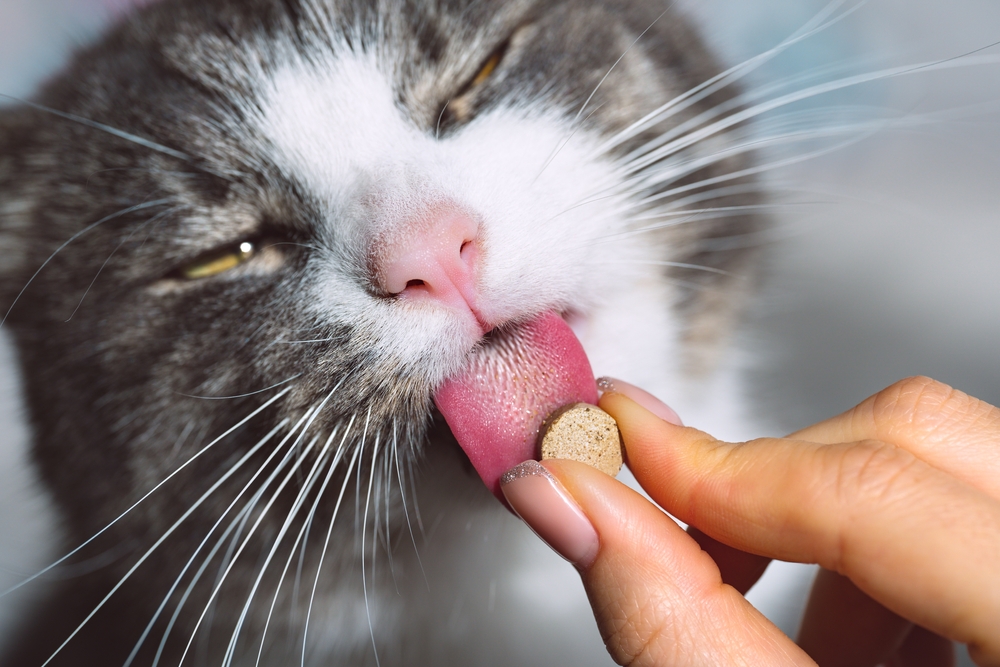Finding ways to improve ourselves is a New Year’s tradition. Many people sign up for new gym memberships, promise themselves they will eat healthier, and vow to save more money when the new year starts. But what about your pet? Can you think of ways to ensure your pet is living their best life in 2023? Our Star of Texas Veterinary Hospital team collaborated with some special friends to offer New Year’s resolution suggestions for your four-legged family member.
Pammy the Pekingese proposes: “Watch your figure. I love treats as much as the next pooch, but they can pack on the pounds. I vow to watch my weight in 2023.”
Star of Texas Veterinary Hospital (STVH): Pammy isn’t the only pet who struggles with her weight. More than 50% of U.S. pets are considered overweight or obese by their veterinary care provider. Tips to help your pet keep their lovely figure include:
- Determine your pet’s calorie needs — Consider your pet’s age, weight, and activity level to calculate their daily calorie needs.
- Measure your pet’s food — Read your pet’s food label to determine how much food they need a day, and then accurately measure their portion size with a measuring cup or kitchen scale.
- Limit treats — Ensure your pet’s treats account for no more than 10% of their daily calories.
- Exercise your pet — Exercise your pet daily to ensure they remain active and fit.
- Monitor your pet’s weight — Use a pet scale to weigh your pet every month to track their weight status.
Sienna the Siamese says, “Get a check-up. My veterinarian recommends yearly check-ups, but I keep putting it off. My New Year’s resolution is to schedule a wellness examination, because my health is important!”
STVH: Your health is important, Sienna, and wellness checks are the best way to detect conditions, such as kidney disease, heart complications, and abdominal masses. Many pets hide vulnerabilities and don’t exhibit pain or illness signs until their condition advances. A typical wellness examination includes:
- Physical examination — Our veterinary team evaluates your pet from their wet nose to their furry tail to detect abnormalities.
- Blood work — Tests such as a complete blood count (CBC), biochemistry profile, and potentially, a thyroid panel, evaluate your pet’s overall health and detect disease.
- Vaccinations — A routine wellness appointment is a great time to ensure your pet is up to date on vaccines that protect them against dangerous infectious diseases.
- Fecal check — A fecal check ensures your pet isn’t bothered by intestinal parasites.
Reggie the rottweiler recommends, “Prioritize your dental health. I value my teeth, but I don’t always care for them properly. I vow to take better care of my pearly whites this year, so my smile continues to impress my owner’s visitors.”
STVH: Reggie’s smile is pretty impressive—and scary. Periodontal disease is a common problem that affects many pets by 3 years of age. Bacteria are attracted to food particles left behind after your pet eats, and these pathogens can invade under their gum line and damage the structures that support the teeth. Complications include bad breath, swollen and bleeding gums, loose and missing teeth, and tooth root infections. If the bacteria enter your pet’s bloodstream, they can damage organs throughout the body. Recommendations to keep your pet’s teeth healthy include:
- Scheduling dental examinations — Professional veterinary dental examinations involve anesthetizing your pet so our team can thoroughly examine their teeth and oral cavity. We also perform X-rays, because dental disease isn’t always evident on physical examination. Once our team fully evaluates your pet’s mouth, we remove accumulated plaque and tartar from their teeth and under their gum line and address any concerns.
- Brushing your pet’s teeth — Can you imagine brushing your teeth only once or twice a year? Yuck! Your pet needs their teeth brushed daily to remove plaque that accumulates on their teeth between professional cleanings. Ensure you use veterinary approved products, because most human dental products are toxic to pets.
Arthur the American shorthair advises, “Take your parasite prevention medication. I live indoors, but I know parasites can find their way inside, and put me in danger. My New Year’s resolution is to ensure I take my preventive every month.”

STVH: Arthur is right. Year-round, lifelong parasite prevention is important for every pet, including those who never go outside. Pets should be protected from the following dangerous parasites:
- Fleas — Fleas can cause anemia, and can transmit diseases such as cat scratch fever and the plague. In addition, many pets have flea-saliva allergies that cause severe itching, hair loss, and potentially secondary skin infections.
- Ticks — Ticks are hardy critters that can transmit debilitating diseases, such as Lyme disease, Rocky Mountain spotted fever, anaplasmosis, and ehrlichiosis. In addition, some female ticks secrete a neurotoxin that causes paralysis.
- Heartworms — Mosquitoes transmit these dangerous parasites that can severely harm your pet’s heart and lungs.
- Intestinal parasites — Parasites, such as roundworms, hookworms, and whipworms, can leach nutrients and cause your pet gastrointestinal issues.
When making your New Year’s resolutions this year, take time to make some for your pet. If you would like to schedule a wellness examination for your four-legged friend, contact our Fear Free team at Star of Texas Veterinary Hospital, so we can ensure they are happy and healthy for 2023.






